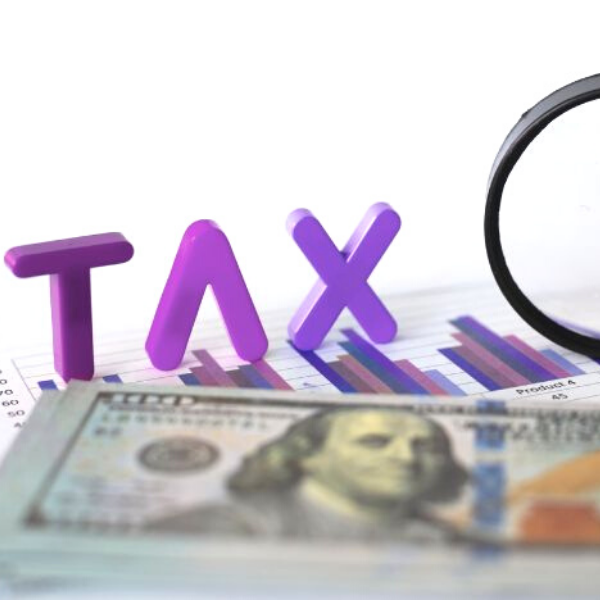Washington D.C. is working on Joe Biden’s Build Back Better Act (the “BBBA”) which is, in part, a spending bill to fund the country and pay for the administration’s revitalization programs. The BBBA legislation requires revenue to pay for it and that means tax law changes are on the horizon. The bill may be viewed as “harsh” by wealthy Americans but it has, in some respects, been curtailed from Biden’s campaign rhetoric, especially now that it is through the House Ways and Means Committee. The following is a brief overview of some particularly important aspects of the BBBA, but keep in mind the bill is not final and has not become law. It has a long way to go and remains subject to change. Above all else, now is the time to be in close contact with your tax attorneys, financial advisors, and CPA team to be planning a year-end strategy that optimizes your position.
As to personal income taxes, effective after December 31, 2021, the BBBA proposes increasing the top marginal rate to 39.6% for individuals making $400,000 per year and married couples making $450,000 per year. Additionally, a 3% surtax would be imposed on those with a modified AGI above $5 million or $2.5 million for married individuals filing separately. This rate increase impacts trusts and estates at $100,000. Essentially, this is a tax increase on the wealthiest of Americans.
Additionally, the long-term capital gains rate would increase under the Build Back Better Act to 25% (from its current rate of 20%) for those taxpayers in the highest ordinary income tax bracket. This is currently proposed to impact capital asset sales occurring after September 13, 2021, subject to some limited exceptions, so timing year-end transactions may be tricky. The September 13 date, however, may be a moving target as the bill continues to work through the legislative process. Historically, the capital gains rate changes follow the date of the law’s enactment, which most likely will be the case for the BBBA.
For trusts and estates, the BBBA seeks to reduce the existing gift and estate tax exemption by more than fifty percent (50%). The new exemption would be $5 million per person, subject to inflation indexing, resulting in an estimated final figure of $6.02M per person for 2022. The GST exemption will likewise be reduced. President Biden originally contemplated eliminating the step up in basis at death, but that proposal seems to have been sidelined for now.
Grantor trusts created after the BBBA is enacted, and gifts made to existing grantor trusts after the law’s enactment, may see a change as well. Gifts made under these circumstances may be subject to inclusion in the grantor’s gross estate, thereby defeating a common estate tax management strategy. Additionally, distributions from the trusts to anyone besides the grantor would be deemed taxable gifts under the BBBA. Finally, sales between the trust and its owner would be considered third-party sales, with any loss disallowed, unless the trust is fully revocable, at least as to trusts created after the law’s enactment. These are potentially significant changes to the historical tax benefits associated with grantor trusts.
The Build Back Better Act also proposes changes for IRAs. Individual taxpayers with an AGI above $400,000 ($450,000 for married filing joint taxpayers) would no longer be permitted to contribute to their IRAs, unless it’s a SEP or SIMPLE IRA. This rule kicks in when the total value of all defined contribution accounts and IRAs is greater than $10 million for the taxpayer. Also, any taxpayer in this situation would be mandated to take a required minimum distribution (“RMD”) of 50% of the excess value over a $10 million threshold in their traditional retirement accounts with another RMD for the entire amount over $20 million held in a Roth IRA. This means that IRAs will be subject to drainage under the BBBA, resulting in increased taxes for the Treasury.
Corporations will be impacted by the BBBA as well. Corporate entities will likely see an increase to the flat tax rate granted under the Tax Cuts and Jobs Act of 2017 (“TCJA”). Non-corporate entities may see the TCJA’s Section 199A pass-through deduction limited by the BBBA, perhaps to a maximum allowable amount of only $500,000 for those married filing joint or $400,000 for individual returns.
There are other very specific changes to the tax law being discussed in the legislature that may occur in the final passages of the Build Back Better Act. But again, it has a long way to go before it becomes law, and it remains subject to many hurdles and ongoing political negotiation. As our clients and friends, we ask that you remain calm and patient, and above all else, stay in touch with your legal and financial advisors. We’re here to help you and we will help you create the optimal plan for your situation. Please reach out to request a consultation or call us at 216-696-1422 to discuss your specific situation and being your year-end planning.

